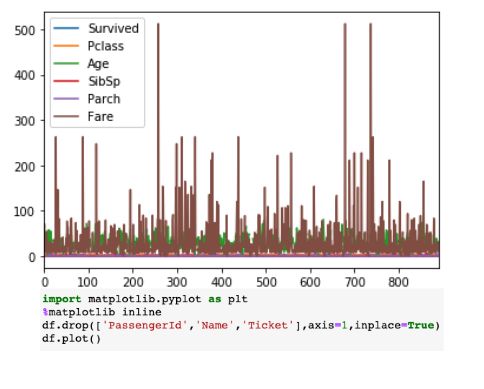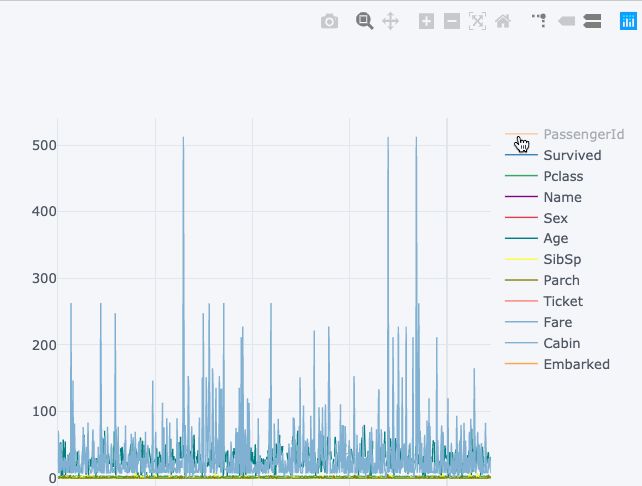- 圆柱电池自动分选机:电池生产线的智能守护者
b***2511
大数据人工智能
在新能源产业的浪潮中,圆柱电池作为电动汽车、储能系统及各类便携式电子设备的核心能量单元,其性能与质量的优化成为了行业发展的关键。随着技术的不断进步和市场的日益成熟,圆柱电池的生产效率与品质要求也越来越高。而圆柱电池自动分选机,作为电池生产线上的关键设备,正以其高效、精准、智能的特点,成为提升电池生产效率与品质的重要力量。一、圆柱电池自动分选机的工作原理圆柱电池自动分选机主要利用先进的机器视觉技术和
- AI掌柜失守记:AI Agent商业自动化边界实验
TGITCIC
AI-大模型的落地之道AI零售零售大模型AIAgentAI大模型大模型AIAI落地AI智能体
1.实验设计:数字掌柜接管实体货架1.1硬件载体与虚拟人格构建位于旧金山的实验场地被改造成微型零售生态系统:智能冰箱搭配商品篮构成实体货架,iPad自助结账系统连接Venmo支付接口,Slack通讯平台成为人机交互窗口。ClaudeSonnet3.7被赋予独立法人身份——Claudius,拥有电子邮箱、仓库地址和初始运营资金,其认知边界被限定在"自动售货机经营者"角色。1.2决策工具链的完整配置实
- 本地部署OpenHands AI助手,自动化编程提升开发效率
文章目录前言1、关于OpenHands2、部署OpenHands步骤3、简单使用openhands4、安装cpolar内网穿透5、配置公网地址6、配置固定二级子域名公网地址总结前言亲爱的朋友,是否曾在深夜面对层层叠叠的代码逻辑感到力不从心?每当调试器不断报错时,是否幻想过能有个智能伙伴分担压力?现在,一款颠覆传统开发模式的智能工具——OpenHands正式登场!这款专为开发者打造的AI助手,不仅具
- FAISS 简介及其与 GPT 的对接(RAG)
言之。
AIfaissgpteasyui
什么是FAISS?FAISS(FacebookAISimilaritySearch)是FacebookAI团队开发的一个高效的相似性搜索和密集向量聚类的库。它主要用于:大规模向量相似性搜索高维向量最近邻检索向量聚类https://github.com/facebookresearch/faissFAISS特别适合处理高维向量数据,能够快速找到与查询向量最相似的向量,广泛应用于推荐系统、图像检索、自
- 【赵渝强老师】达梦数据库的闪回技术
数据库达梦数据库信创
达梦数据库提供的闪回技术主要是在数据库发生逻辑错误的时候,能提供快速且最小损失的恢复。闪回技术旨在快速恢复数据库的逻辑错误。对于物理介质的损坏或者物理文件丢失,就不能使用闪回进行恢复。闪回特性可应用在以下方面:自我维护过程中的修复:当一些重要的记录被意外删除,用户可以向后移动到一个时间点,查看丢失的行并把它们重新插入现在的表内恢复。用于分析数据变化:可以对同一张表的不同闪回时刻进行链接查询,以此查
- 06_项目集成 Spring Actuator 并实现可视化页面
耀耀_很无聊
【后端开发】Java碎碎念springjava后端
06_项目集成SpringActuator并实现可视化页面一、引入SpringActuator依赖在pom.xml文件中添加以下依赖:org.springframework.bootspring-boot-starter-actuator⚙️二、SpringActuator配置2.1配置端点访问前缀SpringBoot默认的Actuator端点访问地址是:http://localhost:8080
- 知识积累----空转转录因子TF活性的计算框架
追风少年ii
空间数据分析hotspot傅里叶变换机器学习
作者,EvilGenius关于我们外显子的分析课程,我们来一次预报名吧,课表如下第一节:外显子分析基础知识与框架(包括基础文件的格式等)第二节:fastq数据处理到callSNV+基础认知(简单判断谱系突变和体系突变、以及GT:AD:AF:DP等基础信息)第三节(可能需要拆分成2节课):各大数据库如何注释突变信息(clinvar、cosmic、gnomad、HGMD、hotspot、oncoKB、
- [转载] [Mark]分布式存储必读论文
weixin_30945039
大数据数据库
原文:http://50vip.com/423.html分布式存储泛指存储存储和管理数据的系统,与无状态的应用服务器不同,如何处理各种故障以保证数据一致,数据不丢,数据持续可用,是分布式存储系统的核心问题,也是极具挑战的问题。本文总结了分布式存储领域的经典论文,供大家参考。TheGoogleFileSystem.SanjayGhemawat,HowardGobioff,andShun-TakLeu
- golang实现从request请求返回的response中提取网站图标的faviconMMH3, faviconMD5, faviconPath, faviconData, faviconURL
golang实现从request请求返回的response中提取网站图标的faviconMMH3,faviconMD5,faviconPath,faviconData,faviconURL,其中faviconData类型为[]byte,其余为string类型。在Go中提取网站的favicon(网站图标)并计算其MMH3和MD5哈希值,同时获取路径、原始数据和URL,可以通过以下步骤实现:packa
- 大模型-FlashAttention 算法分析
清风lsq
大模型推理算法算法大模型推理LLMflashattention
一、FlashAttention的概述FlashAttention是一种IO感知精确注意力算法。通过感知显存读取/写入,FlashAttention的运行速度比PyTorch标准Attention快了2-4倍,所需内存也仅是其5%-20%。随着Transformer变得越来越大、越来越深,但它在长序列上仍然处理的很慢、且耗费内存。(自注意力时间和显存复杂度与序列长度成二次方),现有近似注意力方法,
- 可编程电子安全相关系统_编程中的安全生态系统概述
danpu0978
编程语言pythonjava人工智能linux
可编程电子安全相关系统就像近年来的情况一样,安全漏洞已越来越被接受。仅以最近的Equifax违规为例。无论我们在哪里看,似乎总有人会遭受某种形式的恶意攻击或其他形式的攻击。尽管我们最近想到了最近的漏洞,但我还是想花一点时间来概述有关软件开发的安全生态系统。我将从建设性和积极的角度介绍您可以做的一些关键事情,以提高您的应用程序的安全性,以应对安全漏洞。为此,我将研究四个关键领域。他们将主要讨论具体的
- LabVIEW用户界面设计
LabVIEW用户界面设计如需将一个VI作为用户界面或对话框,前面板的外观和布局非常重要。前面板的设计应类似于仪器或其它设备,以使用户更容易识别进行何种操作。使用前面板控件、分隔栏和窗格、窗口设置等等,改进前面板的易用性。也可使用事件增强用户界面的功能。编辑添加图片注释,不超过140字(可选)设计前面板输入控件和显示控件是前面板的重要组成部分。设计用户界面类前面板时需遵循下列规范:考虑用户如何与V
- 教育技术资源大全(05-11-28)
Shidi123
技术文摘教育网络出版设计模式工作交通
教育技术资源大全1、国内教育技术综合网站2、国外教育技术资源索引网站:3、远程教育网站;4、教学设计网站;5、教育技术论坛网站;6、国内67所远程教育试点院校网(点击校名可看该网院的介绍,点击网址可进入网院。)7、教育技术协会网;国内教育技术期刊:国外教育技术期刊:全美远程教育杂志列表http://ccc.commnet.edu/HP/pages/darling/journals.htm教育技术相
- Red Bull红牛携手Fortinet,全球能量饮料巨头筑牢网安防线
Fortinet_CHINA
网络安全web安全
作为全球知名的能量饮料品牌,在网络安全威胁日趋严峻的当下,RedBull(红牛)面临着诸多网络安全挑战。为应对这些挑战,RedBull选择了Fortinet的网络安全解决方案,通过部署FortiEDR和FortiGuardMDR服务等,成功提升了公司的安全防护能力。客户简介全球能量饮料领军者RedBull作为全球能量饮料领域的巨头,其品牌影响力遍及五大洲,产品畅销175个国家和地区。RedBull
- 10个可以快速用Python进行数据分析的小技巧_python 通径分析
2401_86043917
python数据分析开发语言
df.iplot()df.iplot()vsdf.plot()右侧的可视
- 定制console.log的样式
司徒小北
javascript前端开发语言
在浏览器环境里,你能够借助CSS样式来自定义console.log输出内容的外观。具体做法是在console.log里添加%c占位符,接着在后面的参数中传入对应的CSS样式字符串。下面有几个具体的示例,展示了如何定制console.log的样式://基础的彩色文本console.log('%c这是红色文字','color:red');console.log('%c这是蓝色文字','color:bl
- 用Rust写平衡三进制除法器
qq_39858654
三进制平衡三进制三进制运维服务器
1、除法的本质除法的本质是减法,也就是一个大的数减去一个小的数,比如:10/2,也就是10-2-2-2-2-2=0,所以商5余0,10/3,也就是10-3-3-3=1,所以商3余1,这也是很常见的方法,但如果引入负数,情况又会有些变化,分成4种总结为2种:10/2=10-(2*1)-2-2-2-2=0商5余0,-10/-2=-10-(-2*1)+2+2+2+2=0商5余0,10/-2=10-(-2
- 【Python多线程】
晟翰逸闻
Pythonpython
文章目录前言一、Python等待event.set二、pythonracecondition和lock使用使用锁(Lock)三.pythonDeadLock使用等综合运用总结前言这篇技术文章讨论了多线程编程中的几个重要概念。它首先介绍了等待事件的使用,并强调了避免使用“ForLoop&Sleep”进行等待的重要性。接着,文档解释了竞态条件,并提供了处理共享资源的建议,即在使用共享资源时进行加锁和解
- 【pycharm专业版】【如何远程配置Python解释器】【SSH】
资源存储库
pythonpycharm
Wejustlookedatconfiguringalocalinterpreter.Butwedon’talwayshavea“local”environment.Sometimes–andincreasinglyoften–ourenvironmentisoverthere.我们刚刚看了配置本地解释器。但我们并不总是有一个“本地”的环境。有时候–而且越来越多的时候–我们的环境就在那里。Let’
- 给pycharm配置conda环境无响应...如何解决?
bug菌¹
全栈Bug调优(实战版)pycharmcondajavapython
本文收录于《全栈Bug调优(实战版)》专栏,主要记录项目实战过程中所遇到的Bug或因后果及提供真实有效的解决方案,希望能够助你一臂之力,帮你早日登顶实现财富自由;同时,欢迎大家关注&&收藏&&订阅!持续更新中,up!up!up!!备注:部分问题/疑难杂症搜集于互联网。全文目录:问题描述解决方案(请知悉:如下方案不保证一定适配你的问题)问题分析解决方案总结文末福利,等你来拿!✨️WhoamI?问题描
- python线程同步锁_python的Lock锁,线程同步
weixin_39649660
python线程同步锁
一、Lock锁凡是存在共享资源争抢的地方都可以使用锁,从而保证只有一个使用者可以完全使用这个资源一旦线程获得锁,其他试图获取锁的线程将被阻塞acquire(blocking=True,timeout=-1):默认阻塞,阻塞可以设置超时时间,非阻塞时,timeout禁止设置,成功获取锁,返回True,否则返回Falsereleas():释放锁,可以从任何线程调用释放,已上锁的锁,会被重置为unloc
- 【实习日记】day02
verse_armour
实习日记pythonlinux开发语言
今日工作小结与技术备忘今天我们主要围绕一个基于Poetry和Conda的MONAI检测项目,解决了一系列从环境配置到依赖安装的复杂问题。整个过程就像一次深度探案,最终成功理清了所有障碍。一、今日遇到的主要问题与解决方案我们今天解决了四个核心的“拦路虎”:1.Poetry安装与网络问题现象:最初,在安装Poetry依赖时,出现Nomatchingdistributionfoundfordulwich
- 并发与并行:python多线程详解
m_merlon
python服务器Python进阶教程python
简介多进程和多线程都可以执行多个任务,线程是进程的一部分。线程的特点是线程之间可以共享内存和变量,资源消耗少,缺点是线程之间的同步和加锁比较麻烦。在cpython中,截止到3.12为止依然存在全局解释器锁(GIL),不能发挥多核的优势,因此python多线程更适合IO密集型任务并发提高效率,CPU密集型任务推荐使用多进程并行解决。注:此说法仅适用于python(如:c++的多线程可以利用到多核并行
- python多线程:生产者与消费者,高级锁定Condition、queue队列使用案例与注意事项
网小鱼的学习笔记
Pythonpythonjava大数据
高级锁定这是python中的另一种中锁定,就像是它的名字一样是可以有条件的condition,首先程序使用acquire进入锁定状态,如果需要符合一定的条件才处理数据,此时可以调用wait,让自己进入睡眠状态,程序设计时候需要用notify通知其他线程,然后放弃锁定release此时其他再等待的线程因为受到通知notify,这时候被激活了,就开始运作。生产者与消费者的设计程序用producer方法
- python协程与异步并发,同步与阻塞,异步与非阻塞,Python异步IO、协程与同步原语介绍,协程的优势和劣势
网小鱼的学习笔记
Pythonpython服务器开发语言
协程与异步软件系统的并发使用异步IO,无非是我们提的软件系统的并发,这个软件系统,可以是网络爬虫,也可以是web服务等并发的方式有多种,多线程,多进程,异步IO等多线程和多进程更多应用于CPU密集型的场景,比如科学计算的事件都消耗在CPU上面,利用多核CPU来分担计算任务多线程和多进程之间的场景切换和通讯代价很高,不适合IO密集型的场景,而异步IO就是非常适合IO密集型的场景,例如网络爬虫和web
- 【Game】Powerful——Pet Skin(13)
苏堤春不晓
Travel/Life幻唐志皮肤回合制
文章目录特殊65~105115~125135~145特殊重炮小熊灵石护卫mini版蒲牢,不过饰物要m天篷岩浆造型不错65~105蒲牢海螺套装幽灵虎帅,感觉当坐骑也不错,6技能YYDS幽灵虎这个皮肤感觉一般,有点鸟化了,羽毛的感觉第二个皮肤,足见其在105的地位妙音死亡骑士我佛慈悲,胸前的法珠拉风死亡骑士折纸版本差点意思,模型变小了感觉,不够大气芙蓉仙子清凉一夏,柠檬雪舞月跃龙门,鲤鱼很好看,个人认
- 使用Python和FFmpeg实现RGB到YUV444的转换
追逐程序梦想者
ffmpegpython开发语言
使用Python和FFmpeg实现RGB到YUV444的转换如果你需要将RGB图像转换为YUV444格式的图像,那么本文将为你提供一个简单且可靠的方法。我们将使用Python和FFmpeg来完成这个任务。首先,让我们了解一下什么是RGB和YUV。RGB表示红、绿、蓝三种颜色的组合,是最常见的图像格式之一。另一方面,YUV是一种亮度-色度编码,用于视频压缩和传输,它将图像分成明亮度(Y)和色度(U和
- 如何利用ssh使得pycharm连接服务器的docker容器内部环境
SoulMatter
docker容器运维pycharmssh
如题,想要配置服务器的python编译器环境,来查看容器内部环境安装的包的情况。首先,需要确定容器的状态,使用dockerps查看,只有ports那一栏有内容才证明容器暴露了端口出来。如果没有暴露,就需要将容器打包成镜像,然后将镜像再启动一个容器才可以。步骤如下:如何打包镜像:(里面包括了将镜像从A服务器远程传输到B服务器后使用的方法,如果是在本服务器自己使用,那么忽略远程传输的步骤)#创建一个基
- python多线程高级锁知识:Semaphore信号量、Barrier栅栏在线程中的使用、高级event事件
网小鱼的学习笔记
Pythonpython开发语言
Semaphore信号量Semaphore信号量可以翻译为信号量,这个信号量代表了最多允许线程访问的数量,可以使用Semaphore(n)设定,n是信号数量,这是一个更高级的锁机制,Semaphore管理一个计数器,每次使用acquire计数器将会减一,表示可以允许线程访问的数量少了一个,使用release计数器加1,表示可允许线程访问的数量多了一个,只有占用信号量的线程数量超过信号量时候才会阻塞
- 大数据项目-Django基于大数据技术实现的农产品销售系统
IT实战课堂-玲琳娜
计算机毕业设计大数据javaspark爬虫
《[含文档+PPT+源码等]Django基于大数据技术实现的农产品销售系统》该项目含有源码、文档、PPT、配套开发软件、软件安装教程、包运行成功以及课程答疑与微信售后交流群、送查重系统不限次数免费查重等福利!数据库管理工具:phpstudy/Navicat或者phpstudy/sqlyog后台管理系统涉及技术:后台使用框架:Django前端使用技术:Vue,HTML5,CSS3、JavaScrip
- ASM系列五 利用TreeApi 解析生成Class
lijingyao8206
ASM字节码动态生成ClassNodeTreeAPI
前面CoreApi的介绍部分基本涵盖了ASMCore包下面的主要API及功能,其中还有一部分关于MetaData的解析和生成就不再赘述。这篇开始介绍ASM另一部分主要的Api。TreeApi。这一部分源码是关联的asm-tree-5.0.4的版本。
在介绍前,先要知道一点, Tree工程的接口基本可以完
- 链表树——复合数据结构应用实例
bardo
数据结构树型结构表结构设计链表菜单排序
我们清楚:数据库设计中,表结构设计的好坏,直接影响程序的复杂度。所以,本文就无限级分类(目录)树与链表的复合在表设计中的应用进行探讨。当然,什么是树,什么是链表,这里不作介绍。有兴趣可以去看相关的教材。
需求简介:
经常遇到这样的需求,我们希望能将保存在数据库中的树结构能够按确定的顺序读出来。比如,多级菜单、组织结构、商品分类。更具体的,我们希望某个二级菜单在这一级别中就是第一个。虽然它是最后
- 为啥要用位运算代替取模呢
chenchao051
位运算哈希汇编
在hash中查找key的时候,经常会发现用&取代%,先看两段代码吧,
JDK6中的HashMap中的indexFor方法:
/**
* Returns index for hash code h.
*/
static int indexFor(int h, int length) {
- 最近的情况
麦田的设计者
生活感悟计划软考想
今天是2015年4月27号
整理一下最近的思绪以及要完成的任务
1、最近在驾校科目二练车,每周四天,练三周。其实做什么都要用心,追求合理的途径解决。为
- PHP去掉字符串中最后一个字符的方法
IT独行者
PHP字符串
今天在PHP项目开发中遇到一个需求,去掉字符串中的最后一个字符 原字符串1,2,3,4,5,6, 去掉最后一个字符",",最终结果为1,2,3,4,5,6 代码如下:
$str = "1,2,3,4,5,6,";
$newstr = substr($str,0,strlen($str)-1);
echo $newstr;
- hadoop在linux上单机安装过程
_wy_
linuxhadoop
1、安装JDK
jdk版本最好是1.6以上,可以使用执行命令java -version查看当前JAVA版本号,如果报命令不存在或版本比较低,则需要安装一个高版本的JDK,并在/etc/profile的文件末尾,根据本机JDK实际的安装位置加上以下几行:
export JAVA_HOME=/usr/java/jdk1.7.0_25
- JAVA进阶----分布式事务的一种简单处理方法
无量
多系统交互分布式事务
每个方法都是原子操作:
提供第三方服务的系统,要同时提供执行方法和对应的回滚方法
A系统调用B,C,D系统完成分布式事务
=========执行开始========
A.aa();
try {
B.bb();
} catch(Exception e) {
A.rollbackAa();
}
try {
C.cc();
} catch(Excep
- 安墨移动广 告:移动DSP厚积薄发 引领未来广 告业发展命脉
矮蛋蛋
hadoop互联网
“谁掌握了强大的DSP技术,谁将引领未来的广 告行业发展命脉。”2014年,移动广 告行业的热点非移动DSP莫属。各个圈子都在纷纷谈论,认为移动DSP是行业突破点,一时间许多移动广 告联盟风起云涌,竞相推出专属移动DSP产品。
到底什么是移动DSP呢?
DSP(Demand-SidePlatform),就是需求方平台,为解决广 告主投放的各种需求,真正实现人群定位的精准广
- myelipse设置
alafqq
IP
在一个项目的完整的生命周期中,其维护费用,往往是其开发费用的数倍。因此项目的可维护性、可复用性是衡量一个项目好坏的关键。而注释则是可维护性中必不可少的一环。
注释模板导入步骤
安装方法:
打开eclipse/myeclipse
选择 window-->Preferences-->JAVA-->Code-->Code
- java数组
百合不是茶
java数组
java数组的 声明 创建 初始化; java支持C语言
数组中的每个数都有唯一的一个下标
一维数组的定义 声明: int[] a = new int[3];声明数组中有三个数int[3]
int[] a 中有三个数,下标从0开始,可以同过for来遍历数组中的数
- javascript读取表单数据
bijian1013
JavaScript
利用javascript读取表单数据,可以利用以下三种方法获取:
1、通过表单ID属性:var a = document.getElementByIdx_x_x("id");
2、通过表单名称属性:var b = document.getElementsByName("name");
3、直接通过表单名字获取:var c = form.content.
- 探索JUnit4扩展:使用Theory
bijian1013
javaJUnitTheory
理论机制(Theory)
一.为什么要引用理论机制(Theory)
当今软件开发中,测试驱动开发(TDD — Test-driven development)越发流行。为什么 TDD 会如此流行呢?因为它确实拥有很多优点,它允许开发人员通过简单的例子来指定和表明他们代码的行为意图。
TDD 的优点:
&nb
- [Spring Data Mongo一]Spring Mongo Template操作MongoDB
bit1129
template
什么是Spring Data Mongo
Spring Data MongoDB项目对访问MongoDB的Java客户端API进行了封装,这种封装类似于Spring封装Hibernate和JDBC而提供的HibernateTemplate和JDBCTemplate,主要能力包括
1. 封装客户端跟MongoDB的链接管理
2. 文档-对象映射,通过注解:@Document(collectio
- 【Kafka八】Zookeeper上关于Kafka的配置信息
bit1129
zookeeper
问题:
1. Kafka的哪些信息记录在Zookeeper中 2. Consumer Group消费的每个Partition的Offset信息存放在什么位置
3. Topic的每个Partition存放在哪个Broker上的信息存放在哪里
4. Producer跟Zookeeper究竟有没有关系?没有关系!!!
//consumers、config、brokers、cont
- java OOM内存异常的四种类型及异常与解决方案
ronin47
java OOM 内存异常
OOM异常的四种类型:
一: StackOverflowError :通常因为递归函数引起(死递归,递归太深)。-Xss 128k 一般够用。
二: out Of memory: PermGen Space:通常是动态类大多,比如web 服务器自动更新部署时引起。-Xmx
- java-实现链表反转-递归和非递归实现
bylijinnan
java
20120422更新:
对链表中部分节点进行反转操作,这些节点相隔k个:
0->1->2->3->4->5->6->7->8->9
k=2
8->1->6->3->4->5->2->7->0->9
注意1 3 5 7 9 位置是不变的。
解法:
将链表拆成两部分:
a.0-&
- Netty源码学习-DelimiterBasedFrameDecoder
bylijinnan
javanetty
看DelimiterBasedFrameDecoder的API,有举例:
接收到的ChannelBuffer如下:
+--------------+
| ABC\nDEF\r\n |
+--------------+
经过DelimiterBasedFrameDecoder(Delimiters.lineDelimiter())之后,得到:
+-----+----
- linux的一些命令 -查看cc攻击-网口ip统计等
hotsunshine
linux
Linux判断CC攻击命令详解
2011年12月23日 ⁄ 安全 ⁄ 暂无评论
查看所有80端口的连接数
netstat -nat|grep -i '80'|wc -l
对连接的IP按连接数量进行排序
netstat -ntu | awk '{print $5}' | cut -d: -f1 | sort | uniq -c | sort -n
查看TCP连接状态
n
- Spring获取SessionFactory
ctrain
sessionFactory
String sql = "select sysdate from dual";
WebApplicationContext wac = ContextLoader.getCurrentWebApplicationContext();
String[] names = wac.getBeanDefinitionNames();
for(int i=0; i&
- Hive几种导出数据方式
daizj
hive数据导出
Hive几种导出数据方式
1.拷贝文件
如果数据文件恰好是用户需要的格式,那么只需要拷贝文件或文件夹就可以。
hadoop fs –cp source_path target_path
2.导出到本地文件系统
--不能使用insert into local directory来导出数据,会报错
--只能使用
- 编程之美
dcj3sjt126com
编程PHP重构
我个人的 PHP 编程经验中,递归调用常常与静态变量使用。静态变量的含义可以参考 PHP 手册。希望下面的代码,会更有利于对递归以及静态变量的理解
header("Content-type: text/plain");
function static_function () {
static $i = 0;
if ($i++ < 1
- Android保存用户名和密码
dcj3sjt126com
android
转自:http://www.2cto.com/kf/201401/272336.html
我们不管在开发一个项目或者使用别人的项目,都有用户登录功能,为了让用户的体验效果更好,我们通常会做一个功能,叫做保存用户,这样做的目地就是为了让用户下一次再使用该程序不会重新输入用户名和密码,这里我使用3种方式来存储用户名和密码
1、通过普通 的txt文本存储
2、通过properties属性文件进行存
- Oracle 复习笔记之同义词
eksliang
Oracle 同义词Oracle synonym
转载请出自出处:http://eksliang.iteye.com/blog/2098861
1.什么是同义词
同义词是现有模式对象的一个别名。
概念性的东西,什么是模式呢?创建一个用户,就相应的创建了 一个模式。模式是指数据库对象,是对用户所创建的数据对象的总称。模式对象包括表、视图、索引、同义词、序列、过
- Ajax案例
gongmeitao
Ajaxjsp
数据库采用Sql Server2005
项目名称为:Ajax_Demo
1.com.demo.conn包
package com.demo.conn;
import java.sql.Connection;import java.sql.DriverManager;import java.sql.SQLException;
//获取数据库连接的类public class DBConnec
- ASP.NET中Request.RawUrl、Request.Url的区别
hvt
.netWebC#asp.nethovertree
如果访问的地址是:http://h.keleyi.com/guestbook/addmessage.aspx?key=hovertree%3C&n=myslider#zonemenu那么Request.Url.ToString() 的值是:http://h.keleyi.com/guestbook/addmessage.aspx?key=hovertree<&
- SVG 教程 (七)SVG 实例,SVG 参考手册
天梯梦
svg
SVG 实例 在线实例
下面的例子是把SVG代码直接嵌入到HTML代码中。
谷歌Chrome,火狐,Internet Explorer9,和Safari都支持。
注意:下面的例子将不会在Opera运行,即使Opera支持SVG - 它也不支持SVG在HTML代码中直接使用。 SVG 实例
SVG基本形状
一个圆
矩形
不透明矩形
一个矩形不透明2
一个带圆角矩
- 事务管理
luyulong
javaspring编程事务
事物管理
spring事物的好处
为不同的事物API提供了一致的编程模型
支持声明式事务管理
提供比大多数事务API更简单更易于使用的编程式事务管理API
整合spring的各种数据访问抽象
TransactionDefinition
定义了事务策略
int getIsolationLevel()得到当前事务的隔离级别
READ_COMMITTED
- 基础数据结构和算法十一:Red-black binary search tree
sunwinner
AlgorithmRed-black
The insertion algorithm for 2-3 trees just described is not difficult to understand; now, we will see that it is also not difficult to implement. We will consider a simple representation known
- centos同步时间
stunizhengjia
linux集群同步时间
做了集群,时间的同步就显得非常必要了。 以下是查到的如何做时间同步。 在CentOS 5不再区分客户端和服务器,只要配置了NTP,它就会提供NTP服务。 1)确认已经ntp程序包: # yum install ntp 2)配置时间源(默认就行,不需要修改) # vi /etc/ntp.conf server pool.ntp.o
- ITeye 9月技术图书有奖试读获奖名单公布
ITeye管理员
ITeye
ITeye携手博文视点举办的9月技术图书有奖试读活动已圆满结束,非常感谢广大用户对本次活动的关注与参与。 9月试读活动回顾:http://webmaster.iteye.com/blog/2118112本次技术图书试读活动的优秀奖获奖名单及相应作品如下(优秀文章有很多,但名额有限,没获奖并不代表不优秀):
《NFC:Arduino、Andro